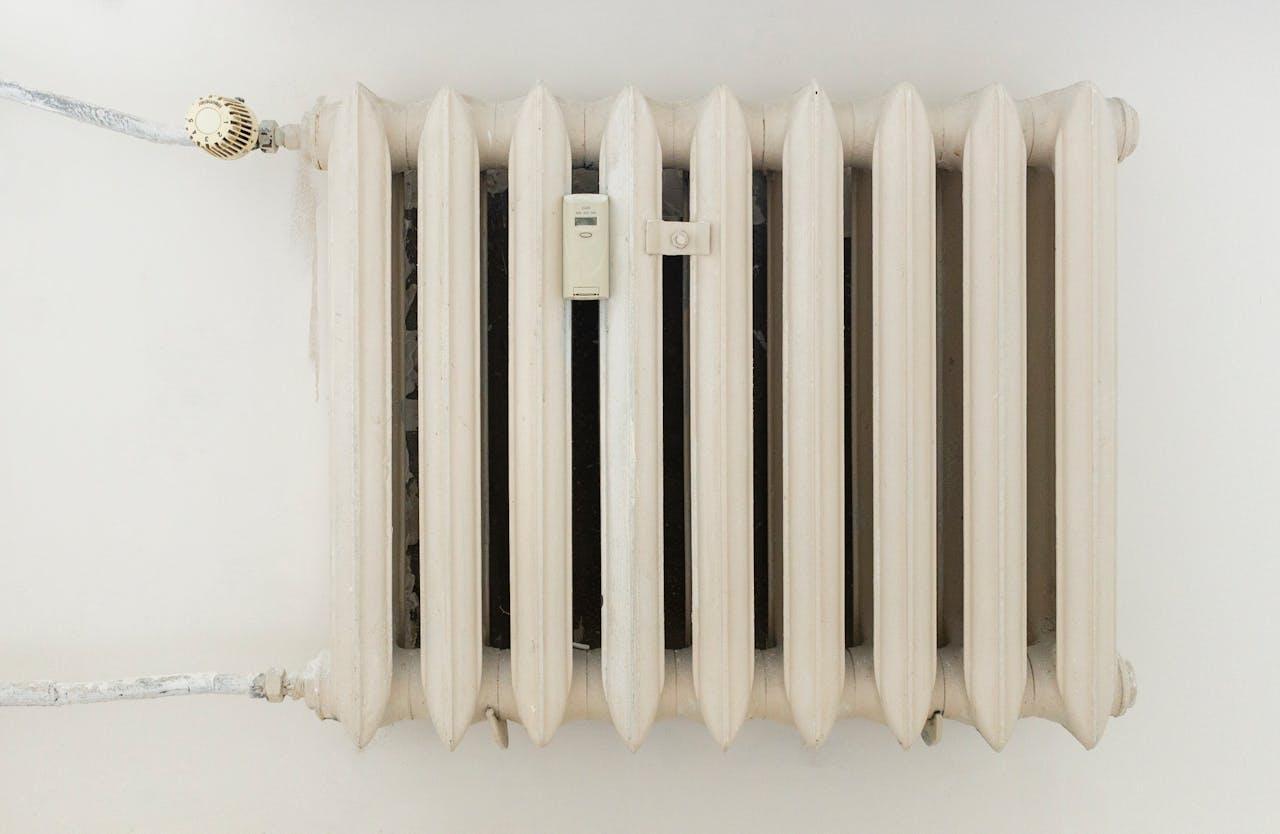Uneven heating is a common problem in many homes. One room stays perfectly cosy while another feels like an icebox or takes ages to warm up. It can waste energy and strain your central heating system, but with a few adjustments, you can enjoy consistent warmth throughout your home.
Causes of Central Heating Imbalance
If one room in your home is colder than the rest, several factors might be to blame.
In some homes, the heating system hasn’t been set-up to distribute heat evenly. Rooms farther from the furnace or boiler might not receive adequate airflow or warm water through the radiators. Often older radiators can get blocked with sludge – a build up of debris from the system – which stops them heating fully. Radiators that need bleeding will be hot at the bottom but not at the top. A malfunctioning boiler or heating unit might not distribute heat evenly.
Furniture and curtains blocking vents and radiators can disrupt airflow. If your thermostat is located in a naturally warmer part of the house, it might turn off the heating system before colder rooms reach the desired temperature.
And many homes have drafty windows and poorly insulated walls, which can let cold air in, making it harder to maintain heat in the space.
Quick DIY Fixes to Try First
You can try a few simple fixes to improve the heating in your home:
· Check the vents in each room and adjust the dampers. Open vents fully in colder rooms and partially close them in warmer ones to redirect airflow where it’s needed most.
· Ensure that vents and radiators are not blocked by furniture, curtains, or rugs. Unobstructed airflow is important for heating to be even.
· Check windows and doors for drafts. Use weatherstripping, caulk, or draft stoppers to seal gaps where cold air might be coming in.
· Heavy curtains or blinds can help retain heat in colder rooms. Open them during the day to let in sunlight and close them at night to trap warmth.
· Check your boiler or heating unit for malfunctions. Even if it’s working regular boiler servicing is important and is usually a condition of a boiler’s warranty.
· Smart thermostats can learn your heating preferences and adjust settings automatically. Some models also support remote sensors, ensuring the temperature in every room matches your ideal setting.
· Bleed any radiators if they need it. If they are still unevenly heated it could be a sludge build up causing the imbalance.
Ceiling Fans
Heat rises so running a ceiling fan on a low setting in reverse can help warm a room by pushing warm air down from the ceiling, helping to distribute it more evenly. This stops energy being wasted in areas where it’s not needed – unless you do actually plan on sitting up near the ceiling.
Ductwork Issues
In older homes, or businesses, poorly insulated or leaky ducts can lose heat as it travels to the farthest rooms. Adding insulation or sealing leaks in the ductwork can significantly improve airflow and heating balance.
If your system was poorly designed, the ductwork might need resizing to ensure proper airflow. An HVAC professional can assess and make necessary adjustments.
When to Call a Professional
Sometimes, uneven heating requires more than quick fixes.
If one room remains colder despite your efforts to keep the heat in or seal drafts, a professional heating engineer can diagnose the issue. Things like visible signs of damage or suspected leaks in your duct system need professional attention.
As older heating systems or improperly sized radiators may struggle to heat your entire home evenly. A professional can recommend upgrades or replacements suited to your home’s needs. Equally, if you notice banging or whistling it could indicate a mechanical problem with your furnace or boiler.
Ask friends or family for their heating engineer recommendations, or a quick search of ‘central heating engineers near me’ online will bring up a list of professionals in your area.
When choosing, look at reviews and ask for a quote up front.
Benefits of Resolving Heating Issues
Fixing uneven heating in your home offers more than just comfort. It also improves energy efficiency and extends the lifespan of your heating system.
When your system doesn’t have to overwork to heat colder areas, it uses less energy. This translates to significant savings on your monthly utility bills.
An imbalanced system also forces your furnace or boiler to work harder than necessary. Resolving the issue helps prevent breakdowns and potential costly repairs while extending the system’s lifespan.
An efficient system will use less energy, reducing your home’s carbon footprint and helping create a more ecologically sound future.
Final Thoughts
Uneven heating can make your home feel uncomfortable and waste energy. By getting at the causes and trying a few simple fixes, you can solve the problem and stop heating imbalances in your property. Otherwise, professional help can restore balance and keep every room cosy.





